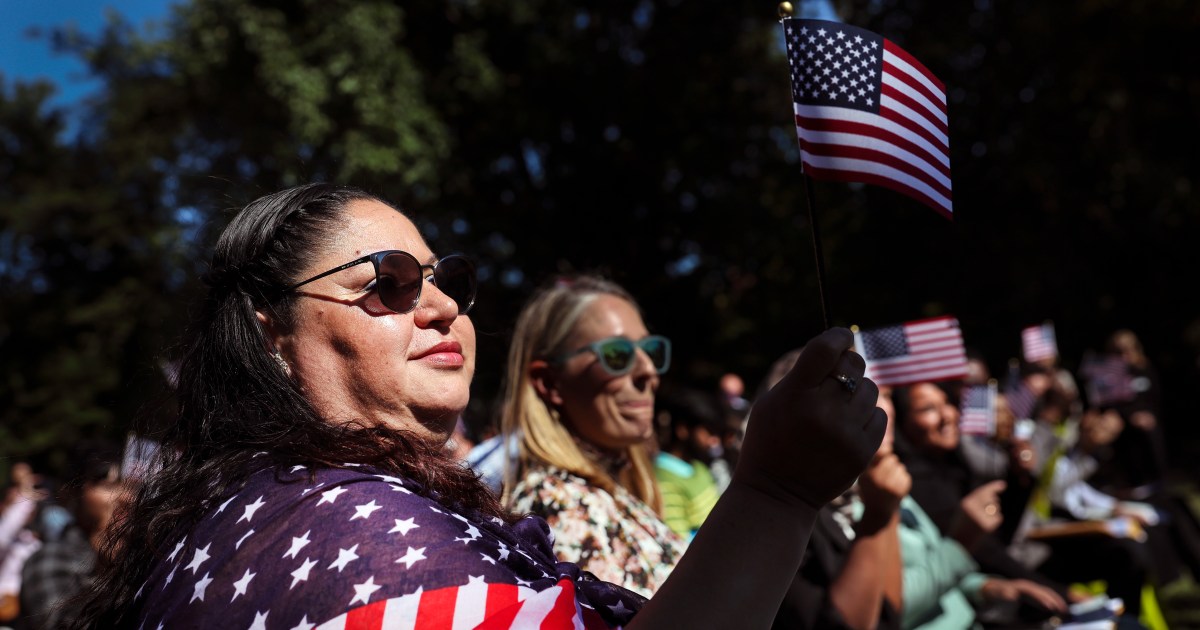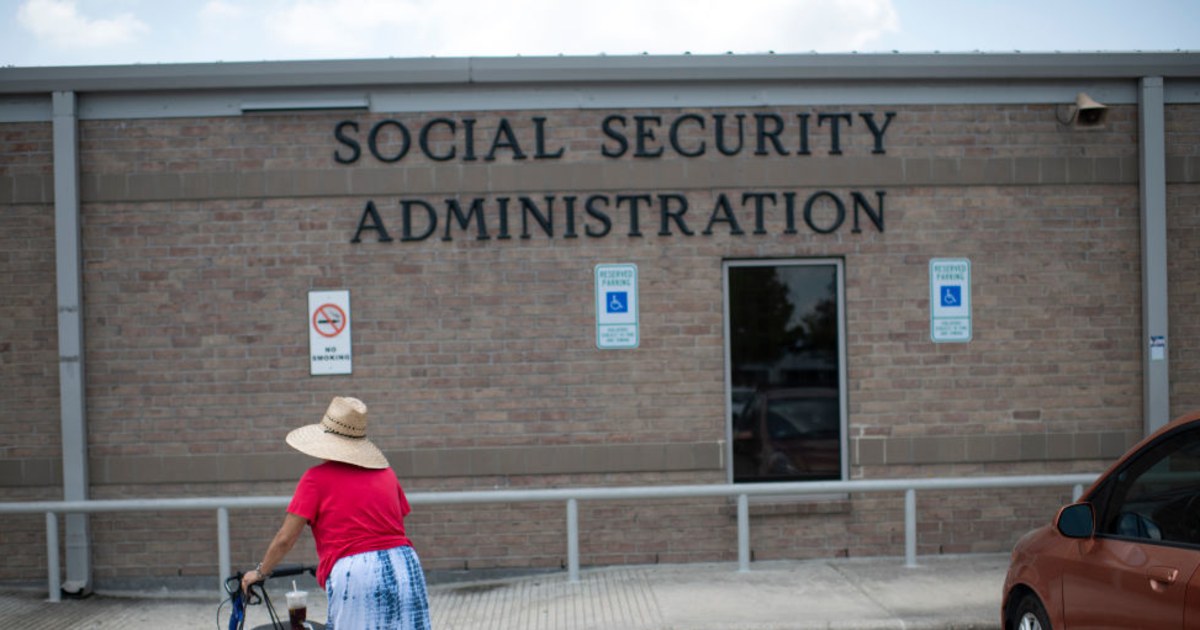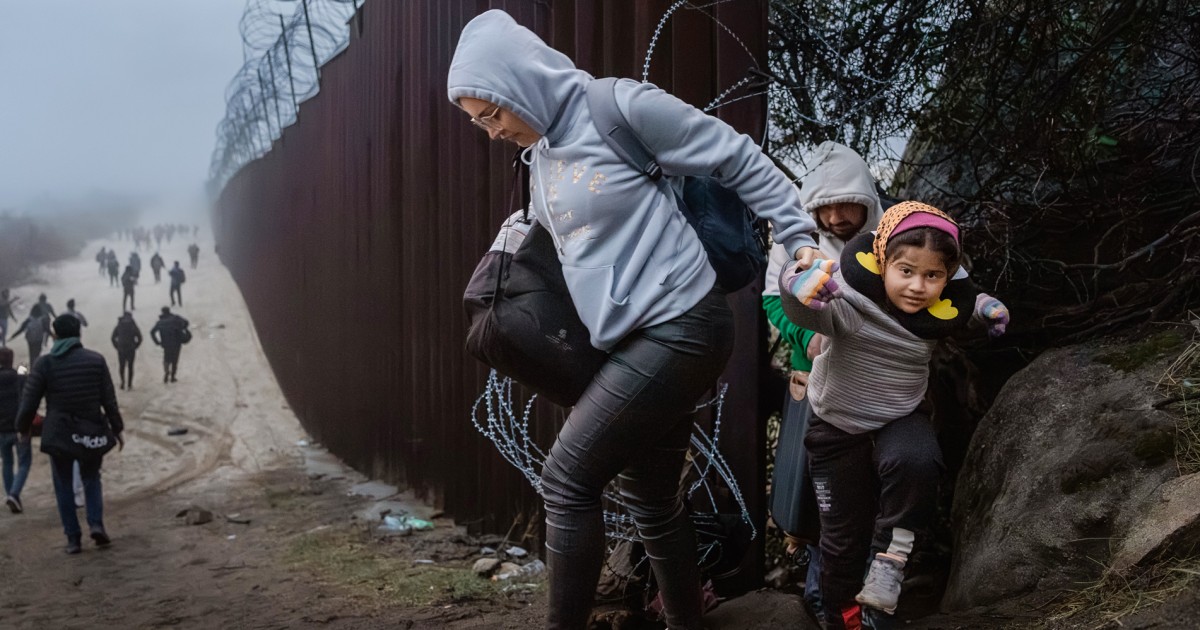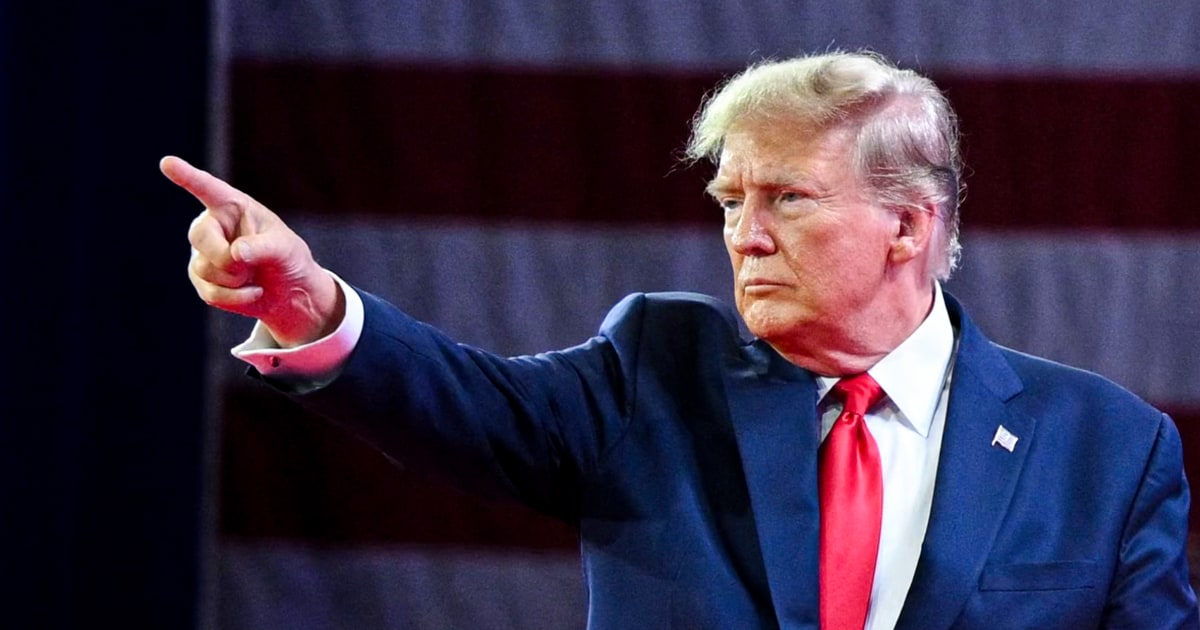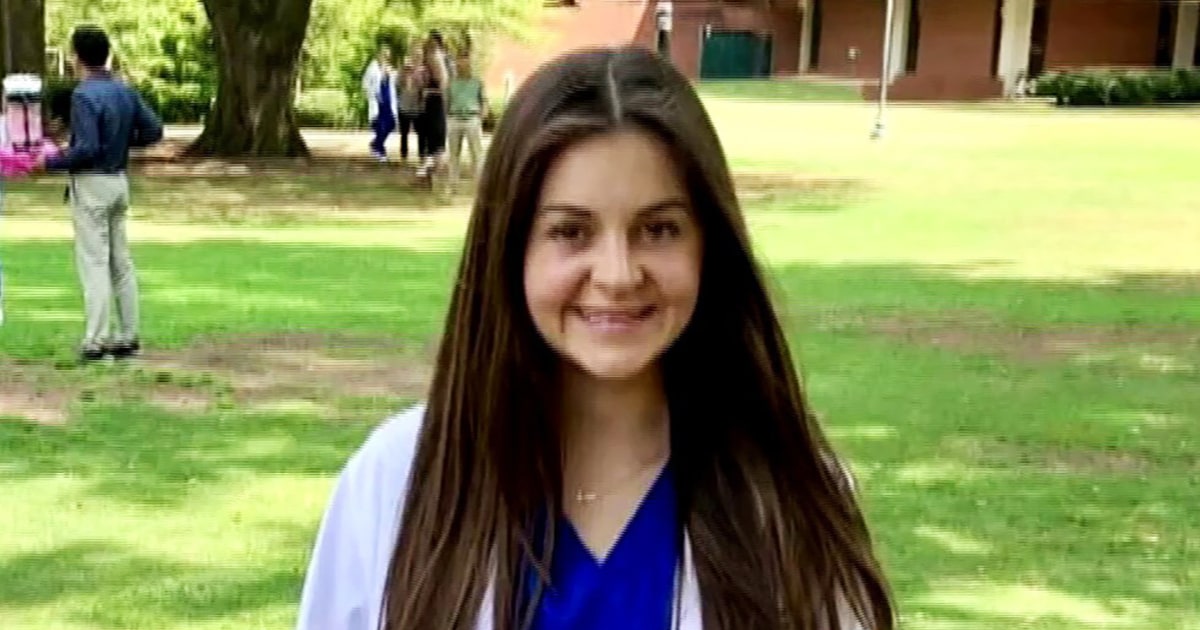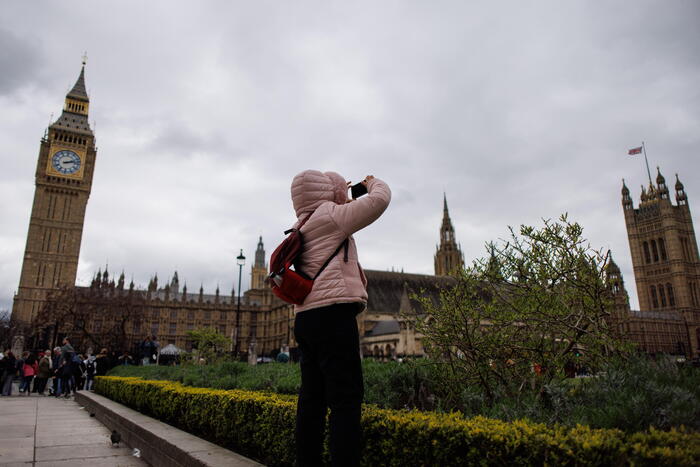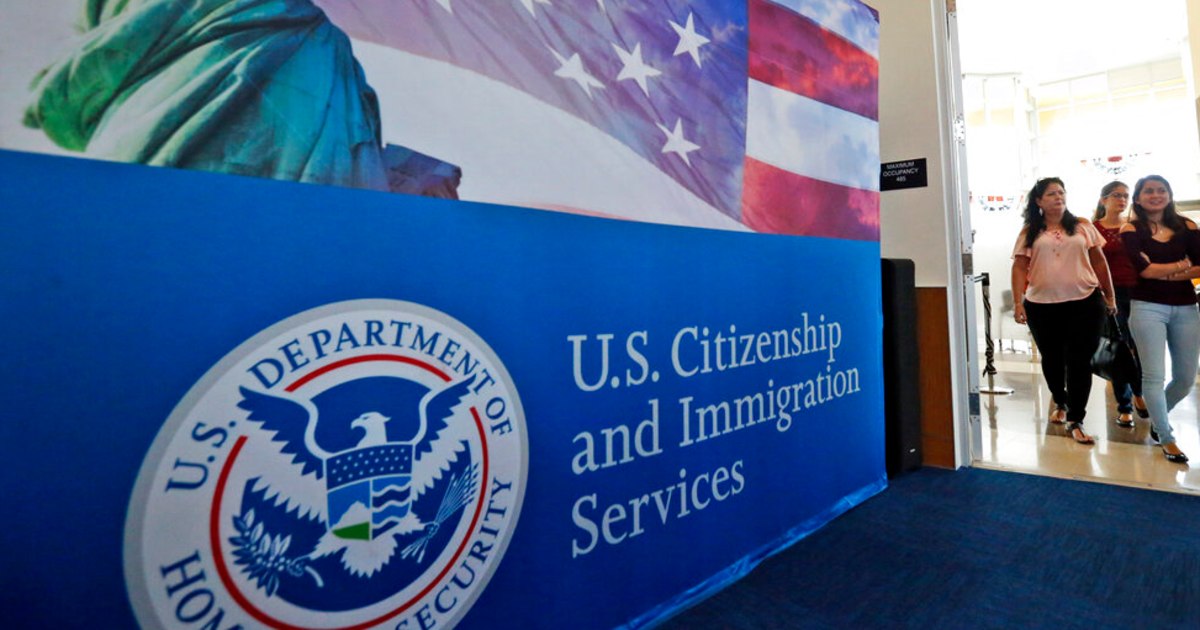This December 23, the final rule of the Department of Homeland Security (DHS) of public charge that eliminates the changes made by the Trump Administration to deny visas or permanent residence to immigrants who receive certain aid from the Government enters into effect.
The new public charge rule, which will only be applied in a few cases, is no longer a threat to migrants, experts explain.
Now, anyone who subsists on government economic assistance is considered a "public charge", so
receiving aid such as food stamps and health or housing benefits will not affect the visa or residence processes.
“There is still a lot of fear and confusion about these benefits," Cindy Ji, director of communications for the Children's Defense Fund of Texas, explained to Telemundo News, "which means that there are children who are starving or not going to see a doctor if they they need it.
This new rule provides guarantees to migrant families that they
can access these services without being penalized
."
Newly naturalized citizen Julia Calbera, originally from Nicaragua, at a naturalization ceremony on September 23, 2022 in Mount Vernon, Virginia.Kevin Dietsch/Getty Images
How did the rule work under Trump?
Former President Donald Trump had changed the rule in 2019 to broaden its scope so that those who received benefits would be considered a "burden" to the state, which hindered their immigration procedures.
He proposed denying residency to those who had received housing or rent subsidies, medical care and food stamps, among other benefits, for more than 12 months.
In addition, it had authorized immigration officials to look at other criteria such as a person's age and health, family size, educational level, and whether they spoke English to determine if they were more likely to become a "burden." public”.
[The Government publishes the changes to the public charge rule and definitively buries the aggressive policy promoted by Trump]
Lawyers explain that in reality this affected very few in practice, but the campaign of fear worked and millions of immigrant families renounced the benefits that corresponded to them or their children.
Trump "only had the rule apply to a handful of programs that was relevant to a very, very small fraction of migrant families," Ji adds.
And it only affected when requesting the first visa or the first
green card
, never for renewals, and it did not affect citizenship either.
If I apply for Medicaid for my minor children and we have a sponsor, will we be a public charge?
Dec 15, 202201:11
In addition, the new rule makes
it more difficult for subsequent presidents to do what Trump did,
radically change policy, Ji said.
The 1999 policy -- on which the new public charge rule is based -- was never formalized as a regulation, only issued as informal guidance, so the Trump administration didn't have to justify its actions, say national experts working with the Children's Defense Fund.
Now, going through the regulatory process creates a requirement that any future Administration must go through that same process before changing policy, including an opportunity for the public to comment on a specific proposal.
Changes after Biden's arrival at the White House
Since the beginning of 2021, Biden had stopped applying the criteria imposed by Trump and announced that he would annul his predecessor's rule.
Since then, immigrant families can use most health care and social service programs without public charge consequences.
Now Biden has reestablished the original rule, which only in some cases considers whether the person received help and only from very specific types.
In February, the Secretary of National Security, Alejandro Mayorkas, had said that with this change "the historical understanding of the term
public charge
will be returned and people who choose to access health benefits and other complementary government services that are available will not be penalized. "
your disposition”.
Immigrants wait to enter a shelter at Sacred Heart Church on December 17, 2022 in El Paso, Texas.John Moore / Getty Images
The new rule clarifies that:
The fact that a child or a relative uses federal social protection programs
never affects an immigration application.
SNAP (food stamps), WIC (
Women, Infants and Children
), the Child Tax Credit, subsidized housing also called
Section 8,
and other federal “non-cash” programs (and funded versions of those programs). state and local)
never affect immigration applications.
Eligible immigrant families can use Medicaid for a medical necessity, except for institutional long-term care (such as an assisted living facility for the elderly).
Many cash aid programs do not affect immigration applications: unemployment programs, LIHEAP (
Low Income Home Energy Assistance Program
), pandemic relief, veterans benefits, among others.
DHS may count for public charge if the person used programs like SSI (
Supplemental Security Income
), TANF (
Temporary Assistance for Needy Families
), and any state and local cash assistance as income.
However, DHS will take into account how long and how recently the benefit was received, along with other factors such as a person's education and skills, income, and health when making a determination.
We have been approved for residency, does it count as public charge if we apply for Medicare, Chip or Obamacare?
Dec 8, 202201:07
DHS will not consider non-monetary benefits such as:
Supplemental Nutrition Assistance Program (SNAP)
public housing
School Lunch Programs
The new rule clarifies these doubts to all federal agencies involved and also orders them to disseminate this information to the public.
USCIS will begin applying this new guidance to applications filed or submitted online on or after December 23 and published the new edition of Form I-485, or Application to Register Permanent Residence or Adjust Status.
They ask not to send previous versions of the form, as they will be rejected.
Pamela Subizar and Ronny Rojas contributed to this report.

